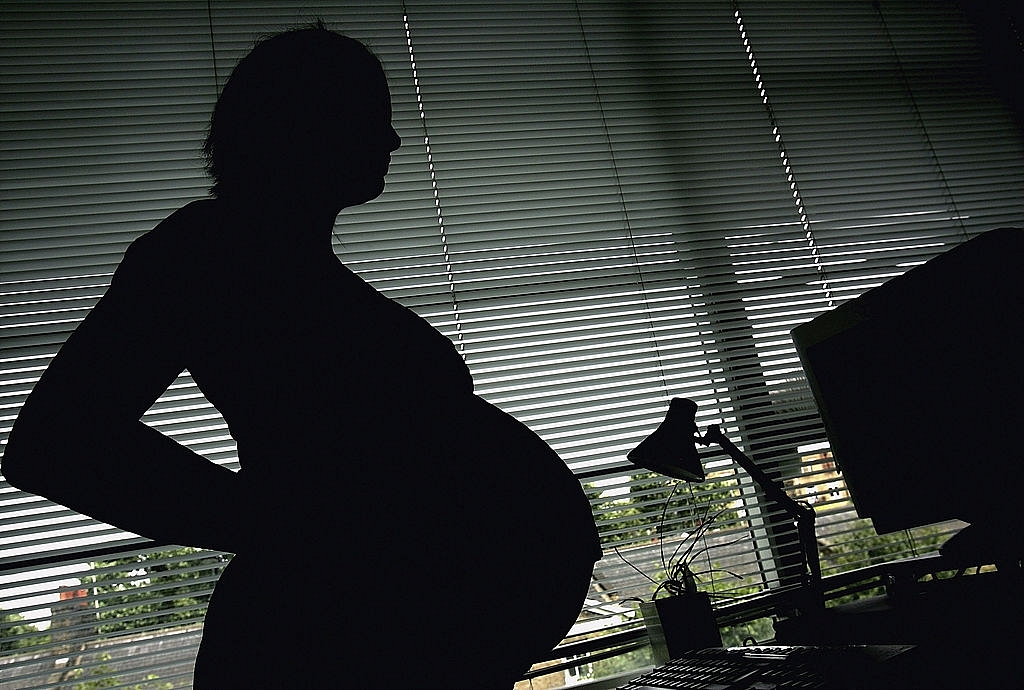Ideas
Do The Champions Of The ‘Maternity Bill’ Know That It All But Kills Surrogacy In India?
- It is as if the those who wrote the ‘maternity leave’ bill and those who wrote the ‘surrogacy bill’ were not on talking terms with each other

(Photo Courtesy: Getty Images)
The Maternity Benefits (Amendment) bill passed by the Rajya Sabha today (20 March) has been at the receiving end of both accolades and brickbats. While working women seem to be cheering at the revision of the 1961 act, which has extended the period of maternity leave from 12 to 26 weeks, an equal number have been vocal about various repercussions of it that range from boosting discriminatory hiring practices to the large shadow of patriarchy that looms over it.
The Bill, first introduced in the Rajya Sabha in August last year, was passed in the Loksabha on 9 March 2017 and currently awaits the Presidential assent. But the bill apart from being patriarchy-disguised-as-help, also lacks foresight especially with regards to surrogacy.
Those behind the two bills, the one being discussed and the Surrogacy Regulation Bill that was introduced in the Lok Sabha last November and awaits parliamentary consent, do not seem to be on talking terms with each other.
What else would explain the following issue?
The maternity bill in its amended version provides for six-and–a half months of leave for a woman who is expecting her first or second child. Anyone who already has two children can avail of just 12 weeks of leave that too just six weeks before delivery.
Given the pride we took in being the surrogacy capital of the world, well almost, until the surrogacy bill that was passed last month,and the stigma attached to anyone who doesn’t have an offspring to name, the maternity bill also provides for women who would like to commission a surrogate to do the childbearing for her as well those who would like to adopt a child, in order to facilitate” bonding with the child”.
A commissioning mother in the definition of the bill has been defined as “a biological mother who uses her egg to have a surrogate child”. What about those who, owing to fertility issues may have to opt for an outside egg donor for the surrogate pregnancy? For instance, in the case of infertile parents whose primary reason for opting to go the surrogate way may be the commissioning mother’s inability to be the egg donor, how will the bill define the “commissioning mother”.
Even more important with respect to this bill is that it ignores the surrogate mother, who chooses to bear the child. No mention has been made of the surrogate mother. So, one who opts to be surrogate will not be entitled to any paid maternity leave, as the bill clearly doesn’t provide for it. Which implies that though the bill deems it important that the mother be given time to bond with the newborn, it doesn’t really think it needs the “unborn or yet to be born” needs equal attention.
This must be seen in light of the surrogacy bill already making surrogacy a difficult option. The surrogacy bill that awaits the final nod permits only altruistic surrogacy, which implies that the surrogate mother in entitled to no monetary compensation other than the medical expenses and insurance coverage during the pregnancy.
Why, then, would anyone ever opt to be a surrogate mother? Unless one is a homemaker and thereby not on the pay roll of any company, and has a heart as large as the lacunae in the bills under discussion, no one in the right frame of mind would “volunteer” for the noble purpose.
Given that one needs to obtain an eligibility certificate to be a surrogate mother and
to “obtain a certificate of eligibility from the appropriate authority, the surrogate mother has to:
(i) be a close relative of the intending couple;
(ii) be an ever married woman having a child of her own;
(iii) be 25 to 35 years old;
(iv) be a surrogate only once in her lifetime; and
(v) possess a certificate of medical and psychological fitness for surrogacy. ”
Which 25-35-year-old working woman would want to neither be able to avail of a maternity leave nor have any form of alternate monetary compensation and yet bear a child ‘for a close relative’? Moreover, if she has a child of her own already (which is a prerequisite you see), and wishes to have her own second child, after having been a surrogate mother purely out of the goodness of heart and enough compensation to facilitate the same, does the child qualify as her second or the third one? The third one, if that is what it ends up being, will entitle her to only 12 weeks of leave.
With all these unexplained or rather unforeseen impediments, can the government please explain why would anyone opt to be a surrogate mother?
Support Swarajya's 50 Ground Reports Project & Sponsor A Story
Every general election Swarajya does a 50 ground reports project.
Aimed only at serious readers and those who appreciate the nuances of political undercurrents, the project provides a sense of India's electoral landscape. As you know, these reports are produced after considerable investment of travel, time and effort on the ground.
This time too we've kicked off the project in style and have covered over 30 constituencies already. If you're someone who appreciates such work and have enjoyed our coverage please consider sponsoring a ground report for just Rs 2999 to Rs 19,999 - it goes a long way in helping us produce more quality reportage.
You can also back this project by becoming a subscriber for as little as Rs 999 - so do click on this links and choose a plan that suits you and back us.
Click below to contribute.
Latest